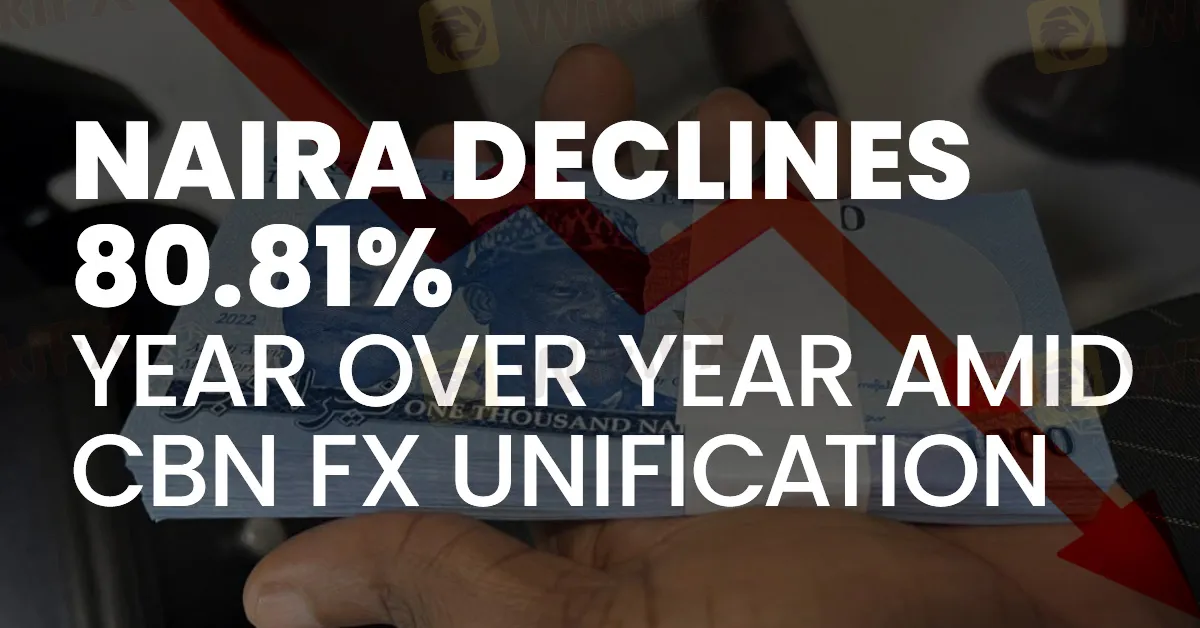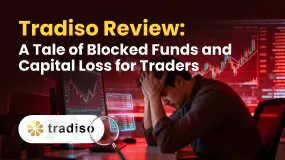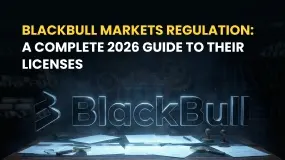Abstract:The value of the naira versus the dollar has decreased by 80.81 percent Year-on-Year (YoY) to an average of N797.43/dollar as of October 2023, according to a THISDAY study, following the unification of foreign exchange (FX) by the Central Bank of Nigeria (CBN).

The value of the naira versus the dollar has decreased by 80.81 percent Year-on-Year (YoY) to an average of N797.43/dollar as of October 2023, according to a THISDAY study, following the unification of foreign exchange (FX) by the Central Bank of Nigeria (CBN).
The Spot FX market saw the naira trading at N441.02/dollar in October 2022, according to data obtained from the FMDQ Securities Exchange.
An agreement between two parties to purchase one currency in exchange for selling another at a predetermined price with settlement taking place on the spot date is known as a foreign exchange spot transaction, or FX spot.
An study reveals that in June 2023, when President Bola Tinubu stopped fuel subsidies and gave the CBN instructions to pursue a single exchange rate, the local currency averaged N625.9 per dollar.
The naira exceeded the average price of N700/dollar on the FMDQ Exchange spot FX market in July due to scarcity and growing speculation trading at the parallel market rate.
According to the FMDQ Exchange financial market data, the average naira fell by 80.21 percent YoY and 122.94% month-over-month (M-o-M) in July, respectively, to reach N769.51/Dollar.
The average naira/dollar exchange rate between January and October 2022 was about N/dollar due to CBN interventions in important industries including manufacturing and aviation, among others.
The government's daring decision to let the local currency fluctuate and give the market more power to determine the value of the currency has elicited conflicting responses from industry participants.
In 2023, the World Bank referred to the Angolan kwanza and the Nigerian naira as the “worst performing currencies” in Africa.
The World Bank noted that the naira was damaged by the CBN's decision to lift trading limits on the official market in its biannual Africa's Pulse report, which is published by the office of the top economist in the World Bank Africa Region.
Ethiopia, Ghana, Nigeria, and other nations with double-digit inflation rates were advised by the lender to refrain from unconventional actions that could make their monetary policies
“...monetarization of the fiscal deficit, direct lending interventions, untargeted subsidy programs, or foreign exchange controls” are the actions that the World Bank advised against.
The study found that “the risk of de-anchoring inflation expectations would fuel further inflation, accelerate interest rate increases, and exacerbate the deceleration of economic activity if monetary and fiscal actions are not adequately coordinated to bring down inflation.”
In an interview with THISDAY, Mr. David Adnori, Vice President of Highcap Securities Limited, said that Nigeria's foreign exchange market confronts major difficulties because the country heavily depends on oil exports as a major source of income.
He says that “the country's foreign exchange earnings can be significantly impacted by fluctuations in global oil prices.” A drop in oil prices has an effect on Nigeria's foreign currency reserves, making it more challenging for the nation to meet its international obligations and keep enough foreign exchange liquidity.
He noted that speculation in the foreign exchange market and activities in the parallel market contributed to the spike in volatility that followed the government's announcement of the unification effort.
According to him, this led to distortions in currency rates and made it more challenging for the central bank to implement sound monetary policy.
He continued by saying that Nigeria usually experiences trade imbalances due to more imports than exports. He underlined that this usually leads to an increase in the amount of foreign currency required to pay for imports, placing pressure on the country's foreign reserves.
Consistent, open, and easily comprehensible regulations governing market operations are essential to ensure the proper operation of both local and foreign exchange markets. The governor of the CBN announced that new laws and policies pertaining to foreign exchange will be developed, and that banks and foreign exchange market operators will be consulted extensively prior to the implementation of any new restrictions.
The CEO of Wyoming Capital and Partners, Mr. Tajudeen Olayinka, spoke about the CBN's attempts to strengthen the naira in the foreign exchange market and suggested that it increase domestic output and provide several channels for attracting foreign cash inflow.
He argues that “the CBN has to improve domestic production of goods and services in a manner that promotes healthy competition and create multiple avenues for supply of foreign currencies, such as the US dollar.”
To generate supply, the CBN must continuously determine the best market structure to reduce or eliminate exchange rate divergence. The absence of exchange rate convergence makes the formal foreign exchange market illiquid. Consequently, there isn't another formula.










